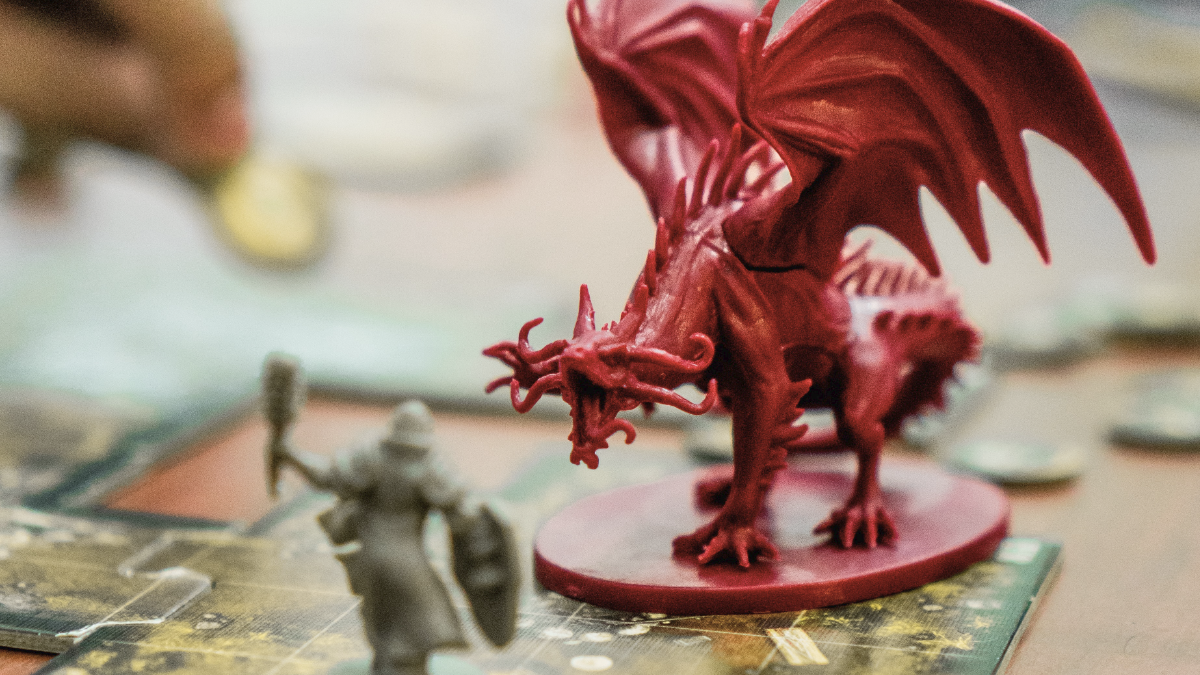overgeeked
Open-World Sandbox
Exactly. So why bother with the middle man in the first place? Chuck the rules and just play.And again, I point out the rules don't matter at all, as a savvy clever DM can just alter reality.
Right. Trouble is, this is all because of the rules. See the discussion about battlemasters and superiority dice "ruining" martials. The rules defining action X as an ability for class Y de facto means that no one else can attempt that thing. Spread that across 13 classes, 40-some subclasses, scores of feats, hundreds of spells, etc and you end up with a very tiny window of things the PCs can simply declare they try without having to stop the game and looking things up.This has the unfortunate side effect of training players to shun having to ask the DM if they can perform some cool feat, and scan their character sheets first, rather than just spontaneously saying "I want to do cool thing!".
This is the tension. Players want predefined things they can do because they think it empowers them to do more stuff, but it doesn't. It limits their creativity. It trains players to think of their character sheet first instead of putting themselves in their character's shoes, imagining the fictional environment, and simply trying something. Even with the most forgiving and easy-going referee, players still start with the buttons on their character sheet. I fought against this constantly when running 5E. Legit nothing I did got players to be creative and move beyond just pressing buttons on their sheet. They'd just smash buttons until they won. Nothing more involved than that.
I tried house rules to encourage some kind of creativity. Inspiration for trying something not on their sheet? Nope, didn't work. Free advantage for trying something not on their sheet? No roll required, just describe what you do in a cool way and get advantage on your attack. You run up the stairs and jump off to attack the ogre from above, here's free advantage on your attack. But nope, didn't work either. A lot of players want tabletop RPGs to be video games. Predefined inputs, outputs, and no alterations. My sheet says I can do X, so I can do X. My sheet doesn't say anything about Y, so Y might as well not even exist.
Instead, train everyone to look beyond the rules think about the genre and the setting, how the character is interacting with the environment, etc. And have the referee make a call based on that. It doesn't matter than last time the call was different because last time the circumstances were different. The situations are not going to precisely repeat. Being fair is infinitely more important than some illusion of consistency.
One of my favorite D&D blog posts. So true. The referee being a thinking person with a brain who can make calls and decisions is the killer app, it's the feature of RPGs. It's not a bug. When players think it's a bug, that's a problem.Relevant article:

The Invisible Rulebooks
When asked to explain the Invisible Rulebooks in person, I usually start with this scenario. If it's any consolation, it rambles in person, ...rolltop-indigo.blogspot.com
There are always invisible rulebooks at the table, and there is no way for the design of a game to account for how those invisible rulebooks get used and leveraged at the table. I would add that this includes the social contract at the table, including how the players (GM included) know each other, how they communicate (or not) about the game, their shared references, and how they interact in general. It's a mistake to think that "good" game design can design away the 'problem' of human interaction.
Last edited:



